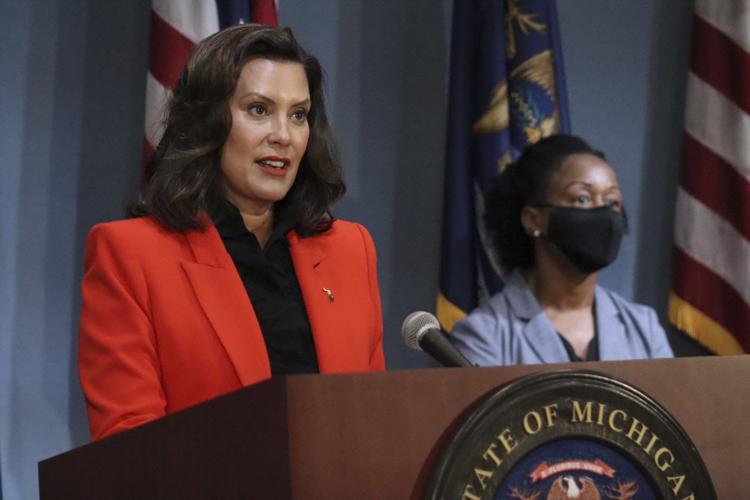Court of Appeals hears arguments for GOP-led Legislature lawsuit against Whitmer over executive order authority

Gov. Gretchen Whitmer asks for more federal aid to battle the COVID-19 pandemic on July 28, 2020.
(The Center Square) – Three Court of Appeals judges heard arguments over Zoom on whether Gov. Gretchen Whitmer has acted within her authority to issue over 155 Executive Orders in response to the COVID-19 pandemic that has restricted the daily lives of almost 10 million Michiganders.
The GOP-controlled Legislature had filed a lawsuit in May alleging Whitmer exceeded her powers.
The Legislature on April 7 approved an emergency declaration through April 30 but declined to extend it further.
Lawmakers instead passed a bill seeking to codify many of Whitmer’s executive orders into law.
Whitmer vetoed that bill and extended the order herself through May 28, citing the 1945 Emergency Powers of Governor Act (EPGA) that she said allows the governor to extend the emergency for as long as necessary.
A Court of Claims judge had previously ruled in favor of Whitmer but noted the governor exceeded her authority under the 1976 Emergency Management Act (EMA) by issuing Executive Order No. 2020-68 without legislative approval.
The legislature appealed straight to the Supreme Court, which ruled in a 4-3 decision that the Court of Appeals should first hear the challenge.
Judges Jane E. Markey, Kirsten Frank Kelly, and Jonathan Tukel heard the case over Zoom while more than 300 people watched.
Michael Williams, who represented the legislature, said the case hinged on whether Whitmer could use her emergency orders “to exercise expansive, all-encompassing, unilateral law-making power throughout the state.”
Williams argued the emergency declaration through the EPGA was meant for a local area, not the entire state.
“This wasn’t a statute that was contemplated to address emergencies in the broad sense that the governor contemplates,” Williams argued.
Williams argued the EMA and EPGA applied in different circumstances.
The EPGA allows a response to a local emergency, while the EMA allows response statewide.
Williams contended Whitmer could have instead worked with the legislature to solve COVID-19 complications.
Deputy Solicitor General Eric Restuccia represented Whitmer.
Restuccia argued the legislature lacked standing to bring the case because they could repeal the EPGA.
The statutes granted Whitmer broad power to protect life and property, Restuccia argued.
“It is the broadest possible statement of authority being conferred and… this statutory scheme under the Emergency Management Act doesn’t constrain the authority of the governor in any way,” Restuccia argued.
Restuccia argued the EPGA wasn’t a local statute because the mayor, sheriff, commissioner of the Michigan State Police, or governor can apply for the state of emergency.
“It’s almost like an outline of state government,” Restuccia said. “It goes from city, county, state.”
Williams disagreed, and argued that the governor is the state’s initial respondent to the COVID-19 emergency but that it’s the legislature’s responsibility to address ongoing harm months later.
“As of the EMA, what we heard over and over there was an insistence that bad circumstances justify continued exercise of emergency powers… with great respect, that confuses the question,” Williams said.
“The question is not whether there exists bad circumstances… The question is who should then exercise the levers of power to address those bad circumstances,” Williams said.

